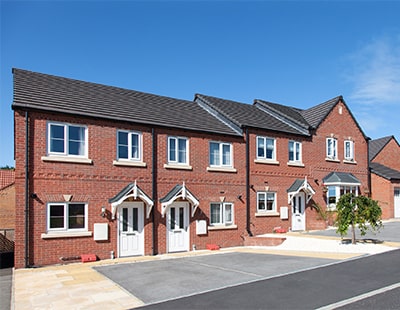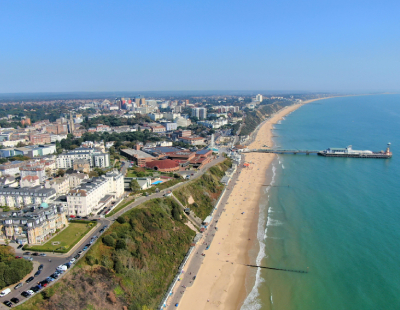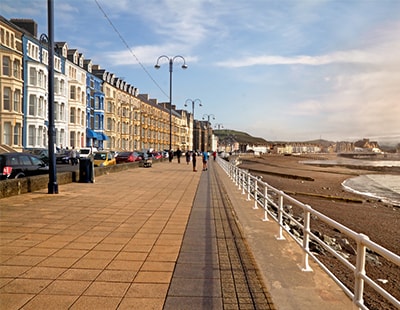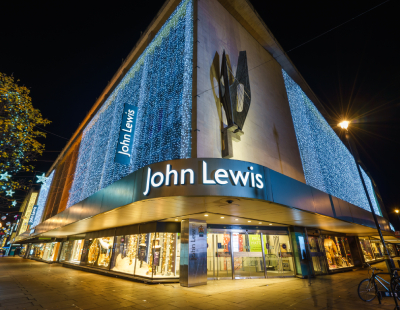I believe that clarity on the way forward is welcome and the roadmap will give people who have been showing interest in making a property investment, but holding back, the confidence to now invest.
By workers returning to the construction industry and mobilising the housing economy again, this will improve sentiment in the market.
What would you like to see from Boris Johnson and the government in terms of the property development and housebuilding sector? What would offer the most reassurance?
After his initial Sunday evening address, the feedback was mixed – some were more unsure and felt it needed further clarification. Many have been calling for the government to treat us like adults, and that’s what it did – giving us the choice to make sensible decisions around reinvigorating the housing sector whilst adhering to Covid-19 guidelines.
With the publication of the roadmap, we have a reasonably clear way forward. We need to start taking baby steps back towards working safely and sustainably in the property sector. No-one wants to see us having to pull the horns in again due to a second or possible third spike of infection.
It’s encouraging to see that valuers can return to their roles in a sensible and safe way. Lenders are also already putting their range of pre-lockdown products back out to investors and homebuyers, offering that much-needed level of reassurance.
How will new developments and schemes need to adapt to the new normal?
Many construction workers can now return to progressing existing developments - much of the work is outside and builders adhere to social distancing by the very nature of the health and safety aspects of their jobs.
There will be operational limitations as we all strive to ensure that the property sector can continue to offer investors greater levels of security and returns that no other investment can.
As more people go back to work and normalise, banks and mortgage brokers will need to work at a steady and safe pace. We’re having to be flexible and have been speaking to developers to extend agreement and completion dates. Like most businesses Solomon was able to carry on with normal business practice via homeworking during the lockdown period.
We believe that the asset class of UK property will always have growth. Prices for off-plan developments won’t take the hit of residential due to the lead times for build – although slightly pushed back by a few months due to social distancing.
What are the challenges and possible rewards regarding property investment in the coming months?
A pandemic on this scale could not be predicted. However, working with experienced and financially strong partners assures buyers of ability to get through this.
With so many FTSE 100 companies having decided not to issue dividends this year, more and more investors are convinced that property is a better investment than anything else out there at the moment.
How can property development/investment live alongside the coronavirus, which looks set to be with us for some time?
We have to remember that property investment is asset-backed – offering a 10-year return with assured monthly returns and ever-increasing property prices - so it will ride out the pandemic.
Investors are looking at an 8% assured rental return with the potential for up to 80% capital growth over a 10-year period.
A few weeks ago alone, we did 15 exchanges in days. Scores more purchased during lockdown. They are happy with their investment decision and are moving forward with confidence in the property market.
With property you have a sure-fire winner – rental income coming in and with the talk of inflation running a bit higher on the way out then house prices will rise too. People buying mortgages will see double-digit enhanced growth from their initial investment.
Interest rates are not going to go anywhere in the coming months and we’re looking at being in a really positive place for property investment towards the end of 2020 and into 2021.
Will future new developments and schemes need to be designed with Covid in mind?
Many of our office-to-resi schemes already have larger spaces and communal areas from the original commercial floorplans.
Private outdoor space can also be made available. Our Globe Works development in Bolton offers penthouses with floor to ceiling windows, bringing the outside in. In Doncaster, the Danum House development features external and internal balconies on some properties.
Developments also offer concierge services, but where there is no concierge, we’re not installing mailboxes, but fitting lockers instead, minimising the need for human contact. New-build developments will continue to adapt and embrace new technologies or innovations that will allow for social distancing and help adhere to coronavirus guidelines.
For remote workers, all our development sites have super-fast broadband facilities on-site, plus there are also USB and plug sockets as standard. WiFi is included as part of the service charge for the developments.
The sites we are marketing are also centrally located – with good access to public transport, but actually many are close to the main employers in town centres making them walker-friendly. People can nip out to get groceries locally and can access many of the essential services and utilities on their doorsteps.
Do you think there will be more office-to-resi conversions with the high street so badly affected by Covid-19?
Yes, there will be. Perversely, perhaps, Covid-19 has been positive for the high street as larger retailers switch to online sales to offset the total lack of footfall from deserted high streets.
We’re seeing local independents (who can also offer home delivery services) scooping up the demand and becoming the shopper’s choice once more.
Many furloughed staff are reconsidering their careers, manufacturing businesses are diversifying product ranges during the pandemic and entrepreneurial home-based micro businesses are booming.
As people’s attitude towards homeworking changes, there’s real potential for more high street office stock to become available to the market.
Will you be using more digital features moving forward, given how important they've proved to be in recent months?
Absolutely, during lockdown our sales messages have been joined by Covid updates for our buyers to ensure they are kept abreast of industry movement via podcasts and webinars. We have embraced digital technology for viewings and communicating with clients.
The growth in people using online meeting facilities during lockdown has made people more comfortable appearing on film, our sales teams have therefore been able to conduct more ‘face-to-face’ meetings than they would normally.
Moving forward, we’ll continue to use technology to drive sales – as specialists in off-plan sales our ability to use CGI, video and brochures to make sales has always been part of our package.
We’re looking at holding one-to-one virtual tours with buyers as the developments progress.
Do you believe secondary and tertiary towns will be at the heart of the property market's bounce back?
We know that yields in Central London were pretty woeful even before the pandemic and even if the market there picks up, it’s likely to be a long time before yields become competitive with those in other parts of the UK.
We’re also seeing a growing desire to move away from the larger cities and into more rural locations post-pandemic.
For that reason, we have been recommending that clients look to some of the country’s secondary and tertiary markets – places where prices are affordable and yet rental demand is strong. There are plenty of these markets in the Midlands, Northern England and parts of Scotland; towns and cities where local economies are strengthening and attracting large amounts of inward investment.
Destinations like Manchester and Liverpool are well-known investment hotspots and there’s still a strong case for investing there in 2020/2021.
But we’re also urging clients to consider less obvious targets, where employment rates, populations and rental demand are all rising, but where average prices are still well within reach. Bolton, Doncaster and Wolverhampton are three good examples, but there are many others that offer variations on the same theme.
The ingredients are there for some very healthy yields and, at the same time, buoyant local economies make longer-term capital appreciation a very credible prospect.
Savills is sticking by its five-year forecast. That is to say, it’s still expecting UK-wide house prices to rise by an average of around 15.3% by the end of 2024. And in the North West, which it expects to outperform all other regions, it is still projecting capital appreciation of around 24%.
The positive conversations our sales team continue to have with customers show that UK regional property is still seen as a safe asset class. It has a long track record of weathering small and large storms so while there is rightful caution, our seasoned investors are still completing on opportunities.









.png)










Join the conversation
Be the first to comment (please use the comment box below)
Please login to comment